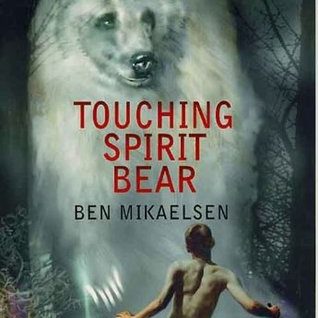Aug. 9 is National Book Lovers Day! The Calgary John Howard Society asked our clients, volunteers and staff to share the books that made an impact on their lives. Check out the list below!
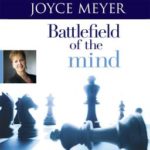 1. Battlefield of the Mind by Joyce Meyers
1. Battlefield of the Mind by Joyce Meyers
“That book really inspired me and helped me grow.” — Lenny, Literacy and Learning client
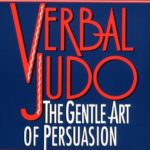 2. Verbal Judo by George J. Thompson
2. Verbal Judo by George J. Thompson
“This is a book I was required to read in college and the only book I kept. I would consider myself someone who has good communication skills, but this book still taught me a lot. I plan on reading it again soon and will probably do so every few years to refresh on where I can improve and to be reminded of what I have already implemented and how far I have come.” — Laurel, Youth Worker
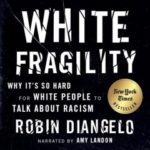 3. White Fragility by Robin DiAngelo
3. White Fragility by Robin DiAngelo
“A great perspective on how white people perceive racism.” — Danisha, Board Member
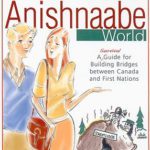 4. Anishnaabe World: A Survival Guide for Building Bridges between Canada and First Nations by Roger Spielmann
4. Anishnaabe World: A Survival Guide for Building Bridges between Canada and First Nations by Roger Spielmann
“This book was recommended to me by an Indigenous Knowledge Keeper. They said that it was the most comprehensive read that existed for folk like me. A quote from the book describes it best, ‘It’s a light-hearted and occasionally sharp-edged cultural primer for non-Anishnaabe, non-First Nations people who live in this country now called Canada but who still really don’t know all that much about Aboriginal people.’ My understanding and knowledge level quadrupled following a read of this book which, by the way, I continue to refer to regularly.” — Leslie, Executive Director
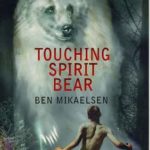 5. Touching Spirit Bear by Ben Mikaelsen
5. Touching Spirit Bear by Ben Mikaelsen
“This thrilling and well-written book is based on restorative justice principles and is often used to study restorative justice in Grades 6 and 7. It’s about a troubled boy who is banished to a remote island where a spirit bear lives to reflect on the harms he has caused others and to find himself.” — Narda, Community Integration Youth Advocate
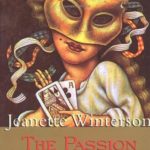 6. The Passion by Jeanette Winterson
6. The Passion by Jeanette Winterson
“I fell in love with the way the book depicts the magic and mystery of Venice, where part of the story unfolds. The main characters would weave in and out of the narrow streets of Venice, and I’d follow along in pursuit of the magic behind every corner turned. It’s set in the 1800s and tells the story of a food servant who falls in love with a woman who becomes a prostitute. It’s a story about love but also explores themes of sexuality and gender.” — Filomena, Literacy Coordinator
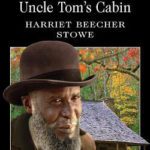 7. Uncle Tom’s Cabin by Harriet Beecher Stowe
7. Uncle Tom’s Cabin by Harriet Beecher Stowe
“I first read it when I was young and it forever informed my view of the lasting impact of slavery on American culture. It gave me an understanding of the deep-rooted challenges faced by the US in moving forward from racism. When it was published before the US civil war it was widely read and helped provide support for emancipation. While some have criticized the book because of the stereotypes it portrays, I would still recommend this book for learning purposes.” — Don, Board Chair
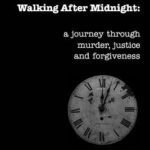 8. Walking After Midnight by Katy Hutchison
8. Walking After Midnight by Katy Hutchison
“This book really gave me an insight into restorative justice – it tells the story of a woman’s journey through a restorative justice process with the young man who killed her husband in Squamish, BC. I remember it being really well written — and inspiring to know that someone who had experienced such tragedy could find a way to heal others as a means of healing herself.” — Lacey, Manager, Berkana House
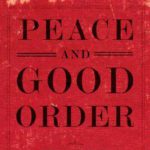 9. Peace and Good Order: The Case for Indigenous Justice in Canada by Harold Johnson
9. Peace and Good Order: The Case for Indigenous Justice in Canada by Harold Johnson
“Systemic racism and the disproportionately high number of Indigenous people in Canada’s justice system is a crisis, particularly in Alberta. The author has a vast amount of experience and expertise from which he provides insight into the inequities that exist, why they exist and what we can do as a society to address them.” — Megan, Communications Advisor
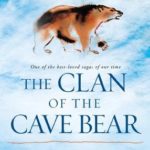 10. The Clan of the Cave Bear by Jean M. Auel
10. The Clan of the Cave Bear by Jean M. Auel
“The Clan of the Cave Bear is the first book in the Earth’s Children book series, which explores the possibilities of interactions between Neanderthal and modern Cro-Magnon humans.” — Narda, Community Integration Youth Advocate
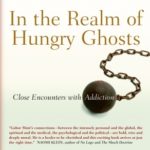 11. In the Realm of Hungry Ghosts: Close Encounters with Addiction by Gabor Mate
11. In the Realm of Hungry Ghosts: Close Encounters with Addiction by Gabor Mate
“This book is a comprehensive look at addiction and responses to it.” — Kassandra, Support Worker, Berkana House
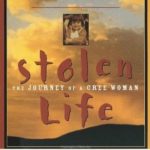 12. Stolen Life: The Journey of a Cree Woman by Rudy Wiebe and Yvonne Johnson
12. Stolen Life: The Journey of a Cree Woman by Rudy Wiebe and Yvonne Johnson
“This is the story of Yvonne Johnson who was sentenced to life in prison at the age of 27. It was the first glimpse that I had into the injustice of the justice system and systemic racism. It also spoke to the ability and strength of the spirit to seek forgiveness and healing.” — Leslie, Executive Director
 13. Extreme Ownership: How U.S. Navy SEALs Lead and Win by Jokko Willink and Lief Babin
13. Extreme Ownership: How U.S. Navy SEALs Lead and Win by Jokko Willink and Lief Babin
“They wrote a book based off how they managed different squads of Navy Seals while fighting in Ramadi Iraq. In a nutshell, each chapter explains a new tactic of leadership which is related to taking ownership. The book explains how the first thing to do when there is a problem is find out what you can change instead of blaming other variables.” — Evan, Community Caseworker
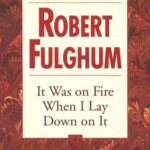 14. It Was On Fire When I Lay Down On It by Robert Fulghum
14. It Was On Fire When I Lay Down On It by Robert Fulghum
“I found it gave perspective to life, not just living but being alive. Good life lessons, very philosophical. Gave me something to think about and helped me to be thankful for what I had.” — Alycia, Receptionist
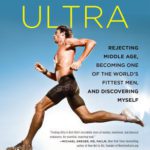 15. Finding Ultra: Rejecting Middle Age, Becoming One of the World’s Fittest Men, and Discovering Myself by Rich Roll
15. Finding Ultra: Rejecting Middle Age, Becoming One of the World’s Fittest Men, and Discovering Myself by Rich Roll
“This book helped me make positive changes in my life which affected me physically and mentally. Finding Ultra is a true story about the personal transformation of a 40-year-old male who was 50 lb. overweight, ate fast food and lived a sedentary lifestyle. I lost over 50 lb. in weight, I’ve completed endurance challenges and I now eat a clean, healthy wholefood plant-based diet. I have also felt the positive effects of this way of living in my work and home life.” — Jeremy, Board Member
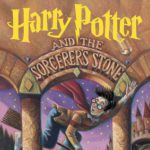 16. Harry Potter and the Sorcerer’s Stone by J.K. Rowling
16. Harry Potter and the Sorcerer’s Stone by J.K. Rowling
“The reason why I recommend this book is because it allows the reader to escape to a magical world that is fun, imaginative, and dangerous all at the same time, and it addresses the powerful themes of love, friendship, and loss. Even before the movies existed, the descriptions of the magical locations in the Sorcerer’s Stone painted a vivid image in my mind. I loved this book as a kid and I still love it- I think there is something in the Harry Potter series for all ages. Harry Potter is the best!” — Amy, Facilitator/Coordinator, Learning Enhanced Employment Program
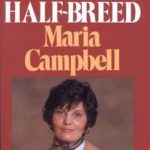 17. Half Breed by Maria Campbell
17. Half Breed by Maria Campbell
“This book is very close to my heart and captured me on a very real level. Maria Campbell is a Metis woman who writes about her story living as part of the road allowance people, and her experience in Vancouver living on Hastings, and getting to where she is now (has her PHD and is a beautiful and strong storyteller). This story is short and sweet and it is an easy read that will draw anyone who is looking to understand the system that the Indigenous community has endured. It is told in a very understandable and easy way so should be good for anyone who reads a lot, or doesn’t read much.” — Fanar, Housing Liaison
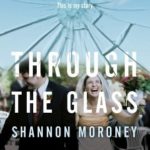 18. Through the Glass by Shannon Moroney
18. Through the Glass by Shannon Moroney
“This is a story about a woman whose husband was convicted of murder. Shannon is a restorative justice advocate and her message in the book speaks to the need for organizations like ours that, regardless of the crime, work to restore lives so that everyone can live in trust, safety, peace and the ability to work towards fulfillment of their highest potential. It is a great reminder of why CJHS does what it does the way it does.” — Leslie, Executive Director
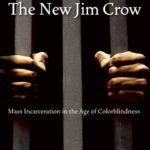 19. The New Jim Crow by Michelle Alexander
19. The New Jim Crow by Michelle Alexander
“I’d recommend this book for anyone who wants to better understand how ostensibly ‘colourblind’ institutions can create racialized systems of oppression. This book gave me new tools to explore and interpret the current Black Lives Matter protests, understanding the historical realities of how policing and mass incarceration fueled an explosion in the American prison population related to the ‘War on Drugs’.” — Alex, Board Member
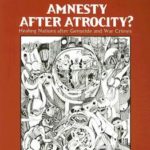 20. Amnesty After Atrocity? Healing Nations after Genocide and War Crimes by Helena Conan
20. Amnesty After Atrocity? Healing Nations after Genocide and War Crimes by Helena Conan
“This was our class textbook for a course I took in University on Restorative Justice and was taught by the author. It was my intro to restorative justice and the reason I ended up interested in CJHS’s mission and values. If you want to dig into post-conflict justice throughout various African regions it is worthwhile.” — Jacqueline, Board Member
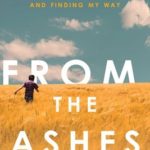 21. From the Ashes by Jesse Thistle
21. From the Ashes by Jesse Thistle
“This memoir is a reflection on life experience of addiction, homelessness, and incarceration. For me, it was an important exploration of how intergenerational trauma can affect Indigenous families in Canada, and contains a powerful message of hope and resilience: that no matter how difficult it may seem, and how many barriers are in your way, it is possible to change your life for the better.” — Alex, Board Member

